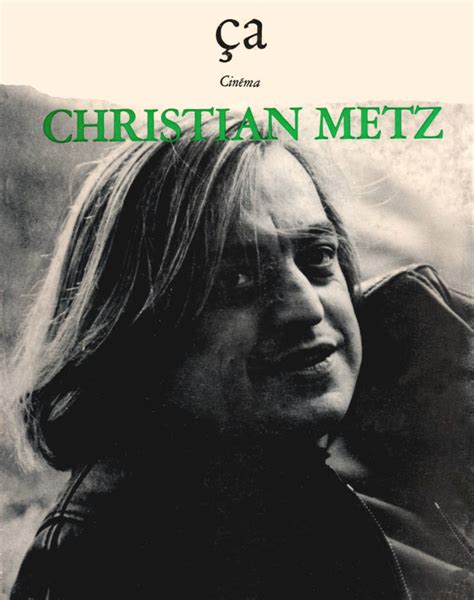Цитата Дина Кунца
Это была одна из самых фундаментальных и священных обязанностей, которые добрые друзья и семьи выполняли друг для друга! Они лелеяли пламя памяти, поэтому ничья смерть не означала немедленного исчезновения из мира; в некотором смысле умершие будут жить после их смерти, по крайней мере, пока будут живы те, кто их любил. Такие воспоминания были важным оружием против хаоса жизни и смерти, способом обеспечить некоторую преемственность от поколения к поколению, порядок одобрения и смысла.
Темы цитат
После
против
другого
хаоса
Непрерывность
Смерть
Умершие
Одобрение
Обязанностей Обеспечить
важные
семьи
Пламя
Друзья
Фундаментальное
поколение
Хороший
Хороший друг
Хорошие друзья
Непосредственно
Наименьшая
жизнь
Жизнь и смерть
Живут
долго
Любят
Смысл
Означают
воспоминания
Память
Большая часть
прохождения
порядка
Выполняется Священный
смысл
Некоторые
из
них
Такими
Оружие
было
бы
в мире
Связанные цитаты
Должно быть, хорошо умереть с сознанием того, что сделал какое-то действительное добро, и знать, что этим делом будешь жить, по крайней мере, в памяти некоторых, и оставишь хороший пример тем, кто придет после. Произведение хорошее — оно, может быть, и не вечно, но мысль, выраженная в нем, вечна, и само произведение непременно будет существовать еще долго-долго; и если впоследствии появятся другие, они не смогут сделать ничего лучше, чем следовать по стопам таких предшественников и выполнять свою работу таким же образом.
Мое поколение, те, кто были студентами в конце 60-х, всегда, говоря словами ВОЗ, говорили о нашем поколении. Это то, что мы думали о себе, как о самом важном, начиная с нарезанного хлеба. А «мы», которых мы имели в виду, на самом деле были западноевропейцами и американским поколением. И когда я оглядываюсь назад, я полагаю, что у меня есть чувство вины за мое поколение, чувство, что мы были ужасно провинциальными и не понимали действительно важных вещей, которые происходили в Восточной Европе.
Позже она вспомнит эти годы и с изумлением поймет, что к пятнадцати годам она уже определилась с большинством предположений, которые останется с ней на всю оставшуюся жизнь: что люди в сущности не злы, что совершенство есть смерть, что жизнь есть лучше, чем порядок и немного хаоса, полезного для души. Самое главное, в этой жизни было все. К сожалению, она забыла об этих вещах, и ей пришлось с трудом запоминать их.
Я хотел бы найти преступление, последствия которого были бы вечными, даже когда я сам не действую, чтобы не было ни одного мгновения в моей жизни, даже когда я спал, когда я не был причиной преступления. какой-то хаос, хаос таких масштабов, что он вызовет всеобщее разложение или беспорядки настолько формальные, что даже после моей смерти его последствия все еще будут ощущаться.
Фотография связана со смертью по-разному. Наиболее непосредственным и явным является социальная практика хранения фотографий в память о любимых существах, которых уже нет в живых. Но есть и другая настоящая смерть, которую каждый из нас претерпевает каждый день, с каждым днем приближаясь к собственной смерти. Даже когда сфотографированный человек все еще жив, тот момент, когда он или она были, навсегда исчез.
Суть жизни заключалась в том, чтобы не верить в смерть для самого себя, действовать так, как будто жизнь будет продолжаться вечно. И жизнь должна была вести себя также так, как если бы маленькие проблемы были большими. Реально относиться к жизни и смерти означало впасть в нереальность. В безумие. Ирония заключалась в том, что единственный способ сохранить рассудок состоял в том, чтобы игнорировать тот факт, что человек находится в безумном мире, или вести себя так, как если бы мир был в здравом уме.
Сюжет - это жизнь. […] Мы начинаем жизнь в хаосе, в лепете. Когда мы устремляемся в мир, мы пытаемся придумать форму, план. В этом есть достоинство. Вся твоя жизнь — это сюжет, схема, диаграмма. Это неудачная схема, но не в этом дело. Сюжет — это утверждение жизни, поиск формы и контроля. Даже после смерти, особенно после смерти, поиск продолжается. Погребальные обряды — это попытка завершить схему в ритуале. Представь государственные похороны, Джек. Это все точность, детали, порядок, дизайн. Нация затаила дыхание. - (ВН 292)



































